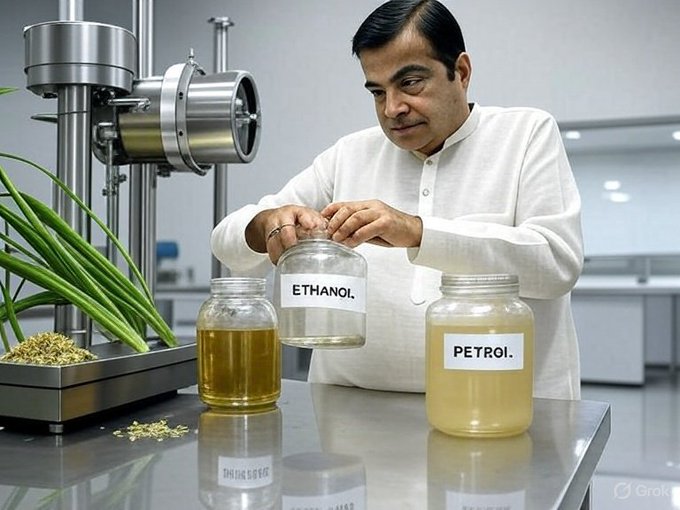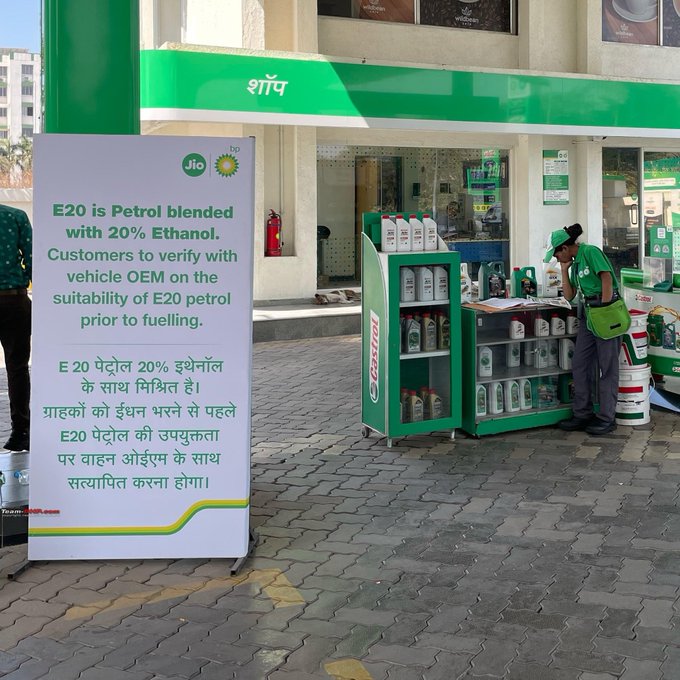Ethanol or Exploit? Is India’s Petrol Being Tampered With Without Public Consent?

As you pull up to the fuel station and refill your tank, have you ever wondered what you're actually putting into your vehicle? What if the petrol you’re buying isn’t 100% petrol anymore—but a cocktail that includes nearly 27% ethanol? India’s recent fuel policy decisions, especially the push for E20 and now E27 ethanol-blended petrol, have sparked a wave of quiet unrest, growing doubts, and strong questions. And at the center of it all stands Union Minister Nitin Gadkari, the face of India’s transportation revolution and a leading figure in the BJP government's biofuel strategy.
But behind the tall claims of “green fuel”, “foreign exchange savings”, and “doubling farmers’ income”, a large section of the Indian public is asking:
Is this fuel shift truly beneficial—or are we being forced into an experiment we never
signed up for?
The Controversy: Ethanol Mix or Mileage Scam?
Let’s begin with the most common consumer complaint— “My mileage has dropped ever since this new fuel came in!” Countless motorists across India have noticed their vehicles delivering significantly lower fuel efficiency after the roll-out of E20 petrol, and now, the government is preparing for E27—a stronger blend of 27% ethanol.
What’s troubling is that this shift has not been optional. In many cities, regular petrol is no longer even available. You get what the pump gives you—whether your car was made for it or not.
Vehicle owners and consumer rights groups are now asking:
Gadkari’s Green Dream – Visionary or Risky?
To be fair, Nitin Gadkari, known for his bold ideas, has always envisioned a biofuel-powered India. His speeches are filled with visions of vehicles running on ethanol, methanol, even hydrogen. He argues that ethanol is cleaner, cheaper, and farmer-friendly, and that India must reduce its 88% crude oil import dependence.

But here’s what critics are pointing out:
And amidst all this, farmers are still waiting for the promised boom. The Minimum Support Price (MSP) for ethanol-producing crops is under debate, and the GST on ethanol remains high at 18%, though Gadkari has publicly demanded it be reduced to 5%.
So the question remains: Is this a farmer’s revolution or just another corporate-led fuel cartel?
Lack of Public Consultation: Why the Silence?
Another major controversy lies in the lack of public discourse. Policy shifts that affect over 200 million vehicle owners should ideally go through a cycle of awareness campaigns, opt-in rollouts, and consumer feedback. But here, the shift was quiet,and for many, sudden.
India woke up one day to fuel pumps dispensing E20—without much clarity on what it meant.
This has led to several major questions echoing across social media, public forums,and local garages:
Legal Backlash and Public Frustration
A few legal threats and consumer petitions have emerged, with some accusing OMCs (Oil Marketing Companies) and the government of “tampering with petrol quality” and violating the Motor Vehicles Act, which specifies fuel compatibility norms.
Fuel station owners in rural areas are also under pressure—they are being asked to stock ethanol blends, even when logistics and vehicle compatibility are poor in their regions.

Meanwhile, auto mechanics report an increase in engine knocking, clogged injectors,
and rust issues—especially in older models.
The Hidden Economics: Who’s Really Benefiting?
The government claims that ethanol is sourced from surplus sugarcane, broken rice,and maize, giving farmers new markets. But analysts point to a deeper layer:
If ethanol is so cheap and available, the public is asking:
Why aren’t petrol prices dropping at the pump? Why isn’t the common man getting any benefit?
Conclusion: Between Green Policy and Public Consent
The ethanol blend story isn’t just about fuel—it’s about transparency, choice, and democratic implementation. While the environmental vision may be commendable, the execution raises serious questions.
Nitin Gadkari may be leading India into a new biofuel era, but the path seems littered with consumer confusion, unanswered questions, and policy opacity. India is a country where people love to discuss and have a say in big decisions. But in this case,the public wasn’t even asked—and that’s what’s bothering everyone the most.
So, the final question remains:
Is India’s ethanol shift truly a clean energy revolution—or is it another fuel full of political smoke?
Frequently Asked Questions
About the Author
Talk n Knock Team